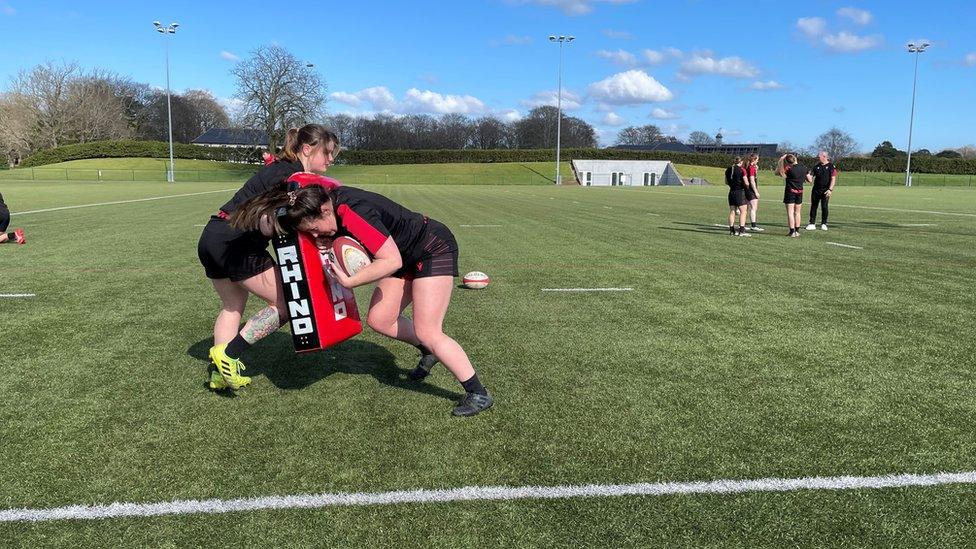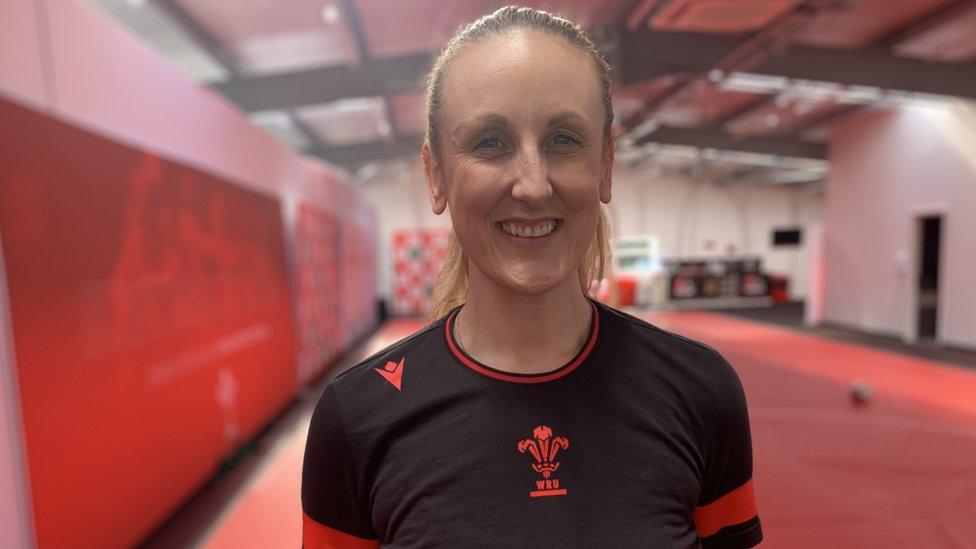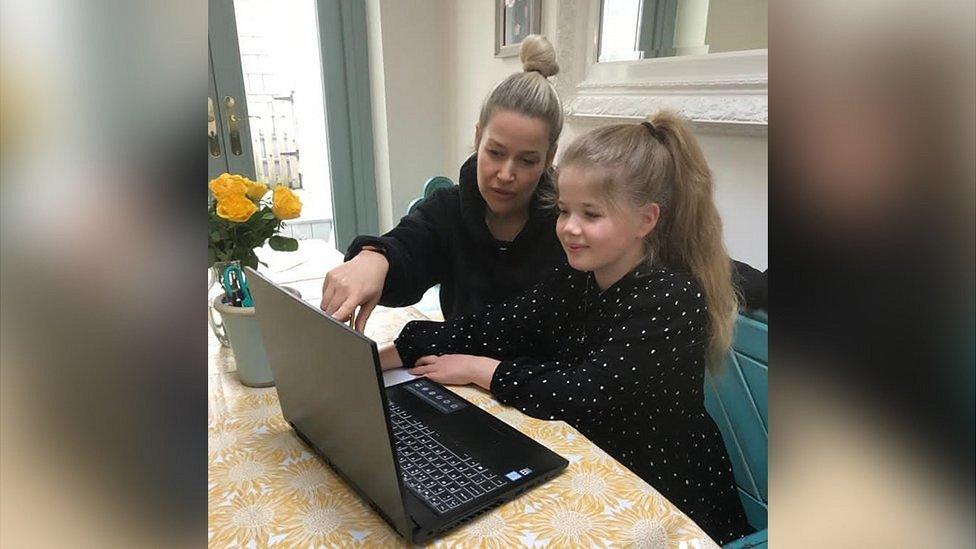Stress incontinence: Stigma tackled in women's rugby
- Published

Jo Perkins has been working with the WRU's women's rugby team to address women-specific health issues
For some women, it is an embarrassing moment on their child's trampoline.
Others might feel a leak when skipping or jogging.
But such is the stigma that few feel comfortable raising the issue of stress incontinence - pressure on your bladder from physical movement or activity causing a leak.
Women and girls may even quit sport as a result and that needs to change, the head physiotherapist for the Wales Rugby Union's women's squad has said.
Jo Perkins has been working with the squad to improve a range of women-specific health issues, to help give them the edge on the field and, as they continue their winning streak in the women's Six Nations, arguably it is working.
"I've worked with women outside of elite sport and this isn't just something that's reserved for women that have had children," she said.
"If anything, the more women I see in sport haven't had children and are suffering with this."
Her concern is that many will either put up with it and simply wear a pad, or worse, leave the sport altogether.
"It's not just impact sports this is happening with.
"Pilates: women are leaking. Swimming: women are leaking. So this is a huge, huge problem.
"This is a massive feminist issue that we need to treat as if we had a pandemic of hamstring strains within a team.

Jo Perkins says unless these health issues are tackled, professional sports risks losing its best female athletes
"It's a muscle and it's something we can do something about.
"How many women or young girls are we losing to things like this and then aren't getting on the rugby field, they're not training and then we're losing some potentially brilliant athletes."
Ms Perkins said when the pelvic floor muscles are not working properly it can lead to abdominal, back or pelvic pain, bladder and bowel symptoms, painful sex and pain using tampons.
"There's a huge spectrum and that can mean our pelvic floor is over working and being too tight or it might be too weak, we might be bracing other muscles in our abdominals or not breathing effectively," she said.
"There's a whole host of reasons why we might get those symptoms, rather than this misconception that it's just a weak pelvic floor."
She said, increasingly, issues like this are being seen as an important part of sports medicine.
"Incontinence signifies pressure is going the wrong way. So if that's happening you're not going to run as fast, or push as heavy in a scrum, or go in as hard into a tackle. So that's then got huge performance implications."

Prop-forward Cerys Hale, 29, says Ms Perkins' work with the team has been ground-breaking
Prop-forward Cerys Hale, 29, says Ms Perkins' work with the team has been ground-breaking and has helped open up conversations.
As a coach with the Dragons Under-18s women's side, Cerys hopes to raise confidence among the next generation of players too.
"We have discussed pelvic floor stuff with the younger girls as well because I don't want them to be worried about it," she said.
"I want them to know it is normal and that there are people that might have a bit of leakage during rugby games or when we're in the gym doing max effort lifts.
"Because I'd hate for there to be one girl in the gym that's mortified because something's happened and she thinks it's only her."
Pelvic health physiotherapist with Swansea Bay University health board, Hannah Hanratty, says it has been estimated as many as half of women have urinary incontinence, though it could be higher given the embarrassment attached to the issue.

Hannah Hanratty says it has been estimated as many as half of women have urinary incontinence
While it can be experienced by amateur and professional athletes, it is traditionally associated with women who have given birth or been through the menopause.
"It can lead to quite a lot of mental health problems for our patients and quite a lot of anxiety because they're just panicking about where the next toilet is," Ms Hanratty said.
"Often what makes it worse is that they haven't been able to tell anyone, they don't want to discuss it with their friends or husbands.
"Some women explained that it makes them feel as if they're dirty or are worried they smell so often we're the first people who they tell."
She said her team will work with patients on a range of pelvic floor exercises, as well as diet and fluid intake before surgery is considered.
"We need to break down the stigma. We shouldn't just be thinking 'it's part of being a woman'. It's not. It isn't normal and it can be fixed with the right input."

Prop-forward Cerys Hale, 29, says Ms Perkins' work with the team has been ground-breaking

WILD MOUNTAINS OF SNOWDONIA: Five farming families open their gates and share their lives
BROODING VALLEYS HIDE MURDEROUS SECRETS: DI Cadi John must shine a light into dark places

- Published3 February 2021

- Published3 April 2021

- Published14 February 2022
